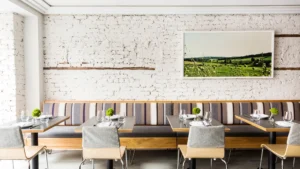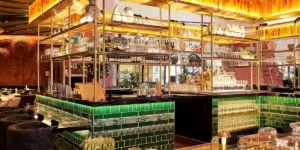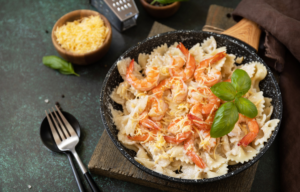The concept of luxury is evolving. It’s no longer just about owning expensive items but experiencing exclusivity, individuality, and meaningful connections. The luxury industry has witnessed tremendous change, driven by consumer demand for unique experiences and sustainability. This blog explores the emerging trends that are shaping the high-end market and how classic elements continue to provide an aspirational lifestyle to those who seek elegance.
Defining Luxury: More than Just Opulence
Luxury is about more than price; it’s about the experience, the story, and the quality. High-end products and services distinguish themselves with unmatched craftsmanship, personalization, and heritage. Whether it’s a handcrafted leather bag or a curated travel experience, luxury items convey a sense of identity and uniqueness that mass-market products cannot replicate.
Historically, luxury was about signaling wealth and social status. Owning a luxurious car or wearing a designer brand symbolized success and exclusivity. Although this perception remains, today’s definition of luxury is more holistic, focusing on well-being, sustainability, and personal fulfillment.
The Shifting Trends
Modern consumers are more interested in experiences over possessions. From exclusive vineyard tours in Bordeaux to curated wellness retreats in Bali, people are seeking memorable experiences that create lasting value. Luxury is shifting towards providing stories that customers can share, moments they cherish, and services that offer a sense of adventure or peace.
Digital Influence
The influence of technology on the high-end sector is undeniable. Brands have embraced augmented reality (AR), virtual reality (VR), and artificial intelligence (AI) to provide personalized shopping experiences. Virtual stores, digital fittings, and exclusive online events have become integral components of luxury services, allowing consumers to experience exclusivity without stepping out of their homes.
NFTs and Digital Collectibles
Non-fungible tokens (NFTs) have also made their mark in the luxury industry. Luxury brands are releasing limited-edition digital assets that collectors and enthusiasts can own, offering new ways to express taste and prestige in the digital world.
The Role of Sustainability in Modern Luxury
Green is the New Gold: The Sustainability Movement
Today’s luxury consumers care deeply about sustainability and the environment. Brands that prioritize eco-friendly materials, ethical practices, and reducing their carbon footprint are gaining traction. Conscious consumption is at the forefront of modern luxury, where quality meets responsibility.
Resale and Vintage Market Growth
The high-end resale market is booming, driven by a growing interest in sustainability. Vintage luxury items carry a sense of history and exclusivity that appeals to collectors. The circular economy approach encourages recycling, reducing waste, and extending the life of products, making vintage luxury a desirable and sustainable choice.
Personalization and Craftsmanship
The Power of Customization
Luxury is about offering tailored experiences that make consumers feel special. Brands now offer bespoke services, allowing customers to personalize their products down to the smallest details—from monogrammed handbags to custom-designed shoes. Personalization adds emotional value, ensuring the consumer is part of the creative process and has a story to tell.
Craftsmanship and Heritage
Handcrafted items remain a cornerstone of luxury. The dedication of artisans, their skills passed down through generations, and the attention to detail all play crucial roles in creating a luxury product. Brands like Hermès, Chanel, and Rolls-Royce are renowned for their craftsmanship, combining heritage with modern-day innovation to deliver timeless pieces.
Emerging Markets and Global Influence
Expansion in Asia
Asia, particularly China, is a major market for luxury. Affluent consumers in China and Southeast Asia are fueling the demand for high-end products and services, driving growth in the luxury sector. Brands are expanding their presence in these regions, tailoring their offerings to cater to the preferences of local consumers.
Cultural Sensitivity and Inclusivity
High-end brands are becoming more inclusive, recognizing the importance of cultural sensitivity. This has resulted in collections inspired by diverse cultures and collaborations with local artisans worldwide. Inclusivity resonates with modern consumers who value respect for cultural heritage and diversity.
Timeless Classics in the Luxury World
Iconic Fashion and Jewelry
Certain items are forever synonymous with luxury. The Little Black Dress (LBD) by Chanel, Tiffany’s engagement ring, or a pair of Louboutin heels are timeless classics that epitomize elegance. These items not only hold their value but often become more prestigious with time, making them prized investments.
Luxury Watches: Tradition Meets Innovation
Luxury watches, like Rolex, Patek Philippe, and Audemars Piguet, represent a blend of tradition, precision, and craftsmanship. Despite the rise of smartwatches, classic mechanical watches remain symbols of prestige and timeless elegance. Today, luxury watchmakers are also incorporating innovative materials and designs, merging heritage with a modern twist.
High-End Real Estate and Smart Living
Branded Residences
Luxury extends beyond fashion and cars into homes. Branded residences, where luxury brands collaborate with developers, offer exclusive living experiences with unmatched services and amenities. These residences are more than homes; they are statements of opulence, providing bespoke concierge services, exquisite interiors, and privacy.
Smart Homes: Technology Meets Comfort
Technology is revolutionizing luxury living. Smart home features—like AI-driven climate control, intelligent security systems, and immersive entertainment setups—combine convenience with exclusivity, enhancing the lifestyle of the elite. The integration of technology into real estate is setting new benchmarks in luxury living.
The Importance of Heritage and Storytelling
Creating Emotional Connections
Luxurious brands understand the importance of storytelling to create an emotional bond with consumers. Brands like Louis Vuitton, Gucci, and Burberry leverage their rich heritage to craft narratives that resonate with their audience, making their products more desirable.
The Human Touch in a Digital Era
While the world moves towards digital solutions, the human touch is still crucial in the luxury experience. Personalized customer service, attention to detail, and memorable in-store experiences make a significant difference. High-touch interactions, like private fittings or exclusive brand events, reinforce the sense of uniqueness that luxury promises.
The luxury landscape is evolving, influenced by changing consumer preferences, technological advancements, and a stronger focus on sustainability. While experiential luxury, personalization, and digital engagement are gaining prominence, timeless classics and exceptional craftsmanship continue to define the essence of luxury.
As the concept of luxury moves beyond mere materialism to embrace experiences, responsibility, and personal fulfillment, it is clear that the future of luxury will be defined not just by opulence but by authenticity and meaning. Brands that adapt to these changes while staying true to their heritage will continue to capture the hearts of luxury consumers for years to come.
Read more at https://fxchartanalysis.com/












